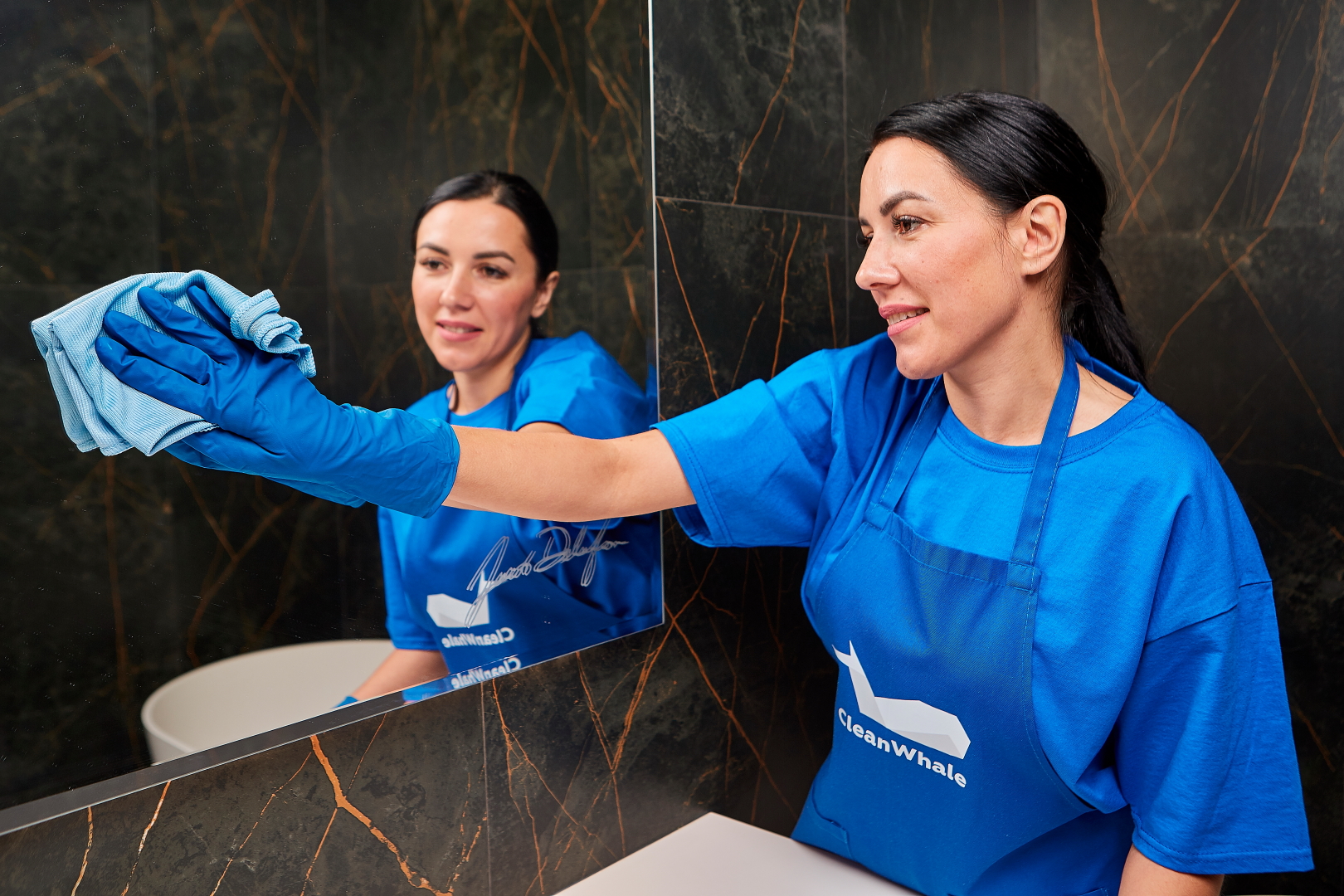Starting a new cleaning company in Germany: opportunities and challenges
Das Reinigungsgeschäft ist eine der ältesten und beständigsten Branchen, die weltweit boomt. Auch in Deutschland gibt es einen stetigen Bedarf an professionellen Reinigungsdienstleistungen, insbesondere in Großstädten. Doch ist es wirklich so einfach, in diese Branche einzusteigen und erfolgreich zu werden? In diesem Artikel beleuchten wir die Vor- und Nachteile des Reinigungsgewerbes in Deutschland und ob es sich lohnt, in diesem Bereich ein eigenes Unternehmen zu gründen.
Advantages of the cleaning industry in Germany

1. Simple and understandable business model
One of the biggest advantages of the cleaning business is its simplicity. Unlike high-tech startups or other complex business models, cleaning is a clear and understandable service: cleanliness is a universal need. Everyone understands the basics of cleaning, making it easier to attract customers and understand what is expected.
2. Low barriers to entry
The cleaning industry has a relatively low barrier to entry, which makes it particularly attractive for new entrepreneurs. Unlike other industries, you don't need any special qualifications or certificates to start a business. Many entrepreneurs start with little capital, making it an accessible option for many.
3. No big investments at the beginning
Starting a cleaning business doesn't require a big investment in technology or infrastructure. Essentially, you need basic cleaning supplies and equipment that can be easily obtained. Especially in the initial phase, the entrepreneur does not have to immediately invest in expensive offices or vehicles.
4. Workers are easy to find
Another plus point is that cleaners usually don't need to be highly skilled to complete simple tasks. In many large cities there is a sufficient number of workers, especially in the low-wage sector, which makes it easier to find staff. This reduces barriers to entry and enables the business to scale quickly.
5. High demand in large cities
The demand for cleaning services is consistently high, especially in large cities. Companies, offices, hotels and private households regularly need cleaning services. In urban areas such as Berlin, Hamburg or Munich, the need is particularly great due to the large number of companies and households, which means continuous orders for cleaning companies.
Disadvantages of the cleaning industry in Germany
1. Low margins
One of the biggest disadvantages in the cleaning industry is the low margin. Many cleaning companies operate on tight profit margins because prices for cleaning services must be kept relatively low to remain competitive. This makes it difficult to make significant profits, especially for smaller companies just starting out.
2. High competition
There are a large number of cleaning companies in Germany, especially in large cities. Competition is fierce and new companies have to compete against established market players. Added to this is the large gray market, where private individuals often offer cleaning services cheaper and without official registration. This leads to price pressure, which is particularly difficult for smaller and new companies to cope with.
3. Need for Technology
Although the cleaning industry may seem simple in nature, technology is playing an increasingly important role in staying competitive. Many customers today expect to be able to easily book services via apps or online platforms. Companies likeCleanwhale orHelpling have implemented this technology to stand out from the competition. But for smaller companies with low margins, investing in such technologies is often not affordable.
4. High employee fluctuation
Another major problem in the cleaning industry is the high fluctuation of employees. Because many cleaners work in the low-wage sector, they often look for less physically demanding or better-paying jobs. This results in companies having to regularly hire and train new staff, which costs time and resources.
5. Complex Logistics
The logistics behind a cleaning business can be more complicated than it seems at first glance. Especially when you need to coordinate multiple jobs at different locations and times. Organizing teams efficiently, providing materials on time and planning cleaning intervals can quickly become a logistical nightmare, especially when there are many jobs running at the same time.
6. Difficult customer reviews and expectations
A big problem in the cleaning industry is the different expectations of customers. Many people have different ideas about what constitutes a “good” cleaning. While one customer may be happy with a thorough cleaning, another might be dissatisfied with the same results. Customer reviews are often difficult to monitor, and since cleaning is a service that is difficult to measure (unlike the volume of water, for example), this can lead to negative reviews and misunderstandings.
7. Competition from the gray market
In addition to competition from established cleaning companies, many companies also have to deal with the so-called “gray market”. Here, private individuals often offer cleaning services cheaper and without official registration. Since they don't pay taxes or social security contributions, they can offer lower prices, which makes it difficult for legally operating companies to keep up.
Conclusion: Is the cleaning business in Germany a good business idea?
The cleaning business offers both opportunities and challenges in Germany. For entrepreneurs looking for a simple business model with little capital investment, this can be an attractive option. The constant demand, especially in large cities, as well as the simple structure of the business make it easy to get started. But the low margins, the tough competition and the high demands on technology and logistics make it difficult to be successful in the long term. Entrepreneurs who want to compete in this market must be willing to invest in technology to differentiate themselves from the competition, while also developing an efficient employee retention and customer support system.
Ultimately, success depends on the cleaning business on the ability to overcome these challenges and assert oneself in an intensely competitive market.








